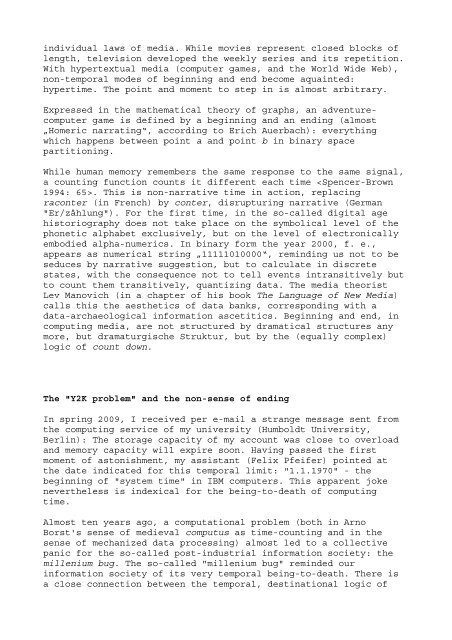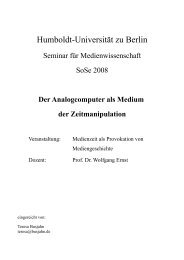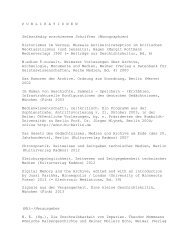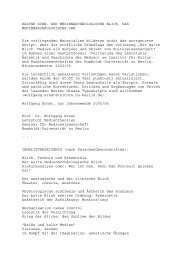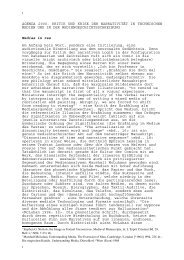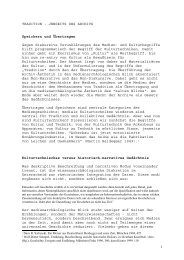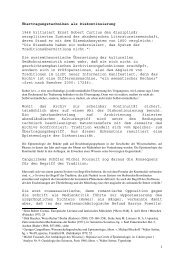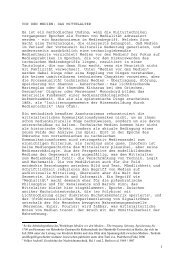"... ELSE LOOP FOREVER". THE UNTIMELINESS OF MEDIA In ...
"... ELSE LOOP FOREVER". THE UNTIMELINESS OF MEDIA In ...
"... ELSE LOOP FOREVER". THE UNTIMELINESS OF MEDIA In ...
- No tags were found...
Create successful ePaper yourself
Turn your PDF publications into a flip-book with our unique Google optimized e-Paper software.
individual laws of media. While movies represent closed blocks oflength, television developed the weekly series and its repetition.With hypertextual media (computer games, and the World Wide Web),non-temporal modes of beginning and end become aquainted:hypertime. The point and moment to step in is almost arbitrary.Expressed in the mathematical theory of graphs, an adventurecomputergame is defined by a beginning and an ending (almost„Homeric narrating“, according to Erich Auerbach): everythingwhich happens between point a and point b in binary spacepartitioning.While human memory remembers the same response to the same signal,a counting function counts it different each time . This is non-narrative time in action, replacingraconter (in French) by conter, disrupturing narrative (German"Er/zählung"). For the first time, in the so-called digital agehistoriography does not take place on the symbolical level of thephonetic alphabet exclusively, but on the level of electronicallyembodied alpha-numerics. <strong>In</strong> binary form the year 2000, f. e.,appears as numerical string „11111010000“, reminding us not to beseduces by narrative suggestion, but to calculate in discretestates, with the consequence not to tell events intransitively butto count them transitively, quantizing data. The media theoristLev Manovich (in a chapter of his book The Language of New Media)calls this the aesthetics of data banks, corresponding with adata-archaeological information ascetitics. Beginning and end, incomputing media, are not structured by dramatical structures anymore, but dramaturgische Struktur, but by the (equally complex)logic of count down.The "Y2K problem" and the non-sense of ending<strong>In</strong> spring 2009, I received per e-mail a strange message sent fromthe computing service of my university (Humboldt University,Berlin): The storage capacity of my account was close to overloadand memory capacity will expire soon. Having passed the firstmoment of astonishment, my assistant (Felix Pfeifer) pointed atthe date indicated for this temporal limit: "1.1.1970" - thebeginning of "system time" in IBM computers. This apparent jokenevertheless is indexical for the being-to-death of computingtime.Almost ten years ago, a computational problem (both in ArnoBorst's sense of medieval computus as time-counting and in thesense of mechanized data processing) almost led to a collectivepanic for the so-called post-industrial information society: themillenium bug. The so-called "millenium bug" reminded ourinformation society of its very temporal being-to-death. There isa close connection between the temporal, destinational logic of


